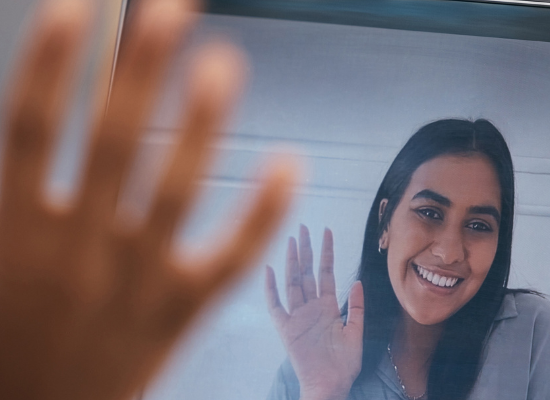
Stephanie Hepburn is a writer in New Orleans. She is the editor in chief of #CrisisTalk. You can reach her at .
It was November 2010. Dr. Kenneth Thompson stood in an Arizona crisis recovery center as RI International’s new Chief Medical Officer. A man entered the center; police had transported him, and he didn’t want to be there. A peer approached the man and said, “I got to imagine you’re really frightened.” “I can tell you I was in a place like this once myself. We’re going to help you get to a better place and get you out of here.”
Thompson could see a shift in the man. He says all that he was carrying—fear, agitation—just fell away. “I mean, immediately. It was profound.”
It was the first time Thompson witnessed peers as more than an ancillary part of a crisis care team. The power of peers, he says, had long been underestimated, and many people in the field had an unfounded belief that working in a crisis space would be detrimental to peers’ mental health.
Over a decade later, while less pervasive, these erroneous notions persist. Peer inclusion, points out Thompson, who is now the executive director at Visible Hands Collaborative in Pittsburgh, is vital to crisis care and recovery. SAMHSA agrees. Their National Guidelines for Behavioral Health Crisis Care call “significant use of peers” an essential quality that must be “baked into” comprehensive crisis systems.
Research has shown peer support programs provide layered benefits. Those who engage in them experience improved quality of life and social functioning. They experience fewer crisis events and hospitalizations; the same is true for peers. According to a study published in APA PsycNet, certified peer specialists in Pennsylvania overwhelmingly reported in a statewide survey they’d experienced personal, recovery-oriented benefits working as a peer support specialist.
Thompson himself has interviewed dozens of peer support specialists who’ve shared how essential recovery skills they’ve learned and how helping others has affected their recovery gains. One woman told Thompson that she’d lived on the couches of friends and family for years. “She said, ‘The fact that I have my own house says it all about what being a peer support worker has done for me,’” says Thompson.
When peers are involved in every layer of crisis care, Thompson has seen seclusion and restraint plummet. “I’ve witnessed peer support significantly reduce both seclusion and restraint and reduce staff injuries.”
The crisis recovery center had moved toward zero-restraint years beforehand. Lisa St. George, former vice president of Peer Support and Empowerment at RI, shared with #CrisisTalk that the transition wasn’t easy. Initially, the organization lost staff because some believed they couldn’t do the work without seclusion and restraint, and staff injuries would increase. “What we found was the opposite,” she said. “We could do it, and staff injuries went way down.”
The previously mentioned misunderstandings of peers in the crisis space have resulted in barriers and limitations on their role. “We’ve continued to massively undersell how vital it is for people to connect with others who’ve been through similar challenges and who can help them on the path to recovery,” says Thompson.
However, that’s changing. For example, last year, the late psychologist Barbara Stanley, co-creator of the Stanley-Brown Safety Plan, a brief, life-saving suicide-prevention intervention, adapted a safety planning intervention training for peer support specialists.
Historically, a person developed their safety plan alongside a clinical provider, such as a nurse, social worker, psychologist or psychiatrist.
In November, Dr. Stanley told #CrisisTalk that peer support specialists should be added to the list of experts who can administer the plan. “With the training tailored to peers, we believe peers can administer the intervention as well or better than clinicians,” she said. “It’s relatively easy to learn and doesn’t require the diagnostic skills that doing a risk assessment does.” She adapted the intervention training with Dr. Charles T. Browning, Chief Medical Officer at RI International, and St. George. (The training is still in development.)
Stanley clarified the aim wasn’t to thrust peer support specialists into a clinical role but to give people access to someone who will connect with them and be fully present. “Peers are very focused on being patient-centered,” she said.
Peer support specialists might not have navigated the same experience but there’s often enough concordance to facilitate bonding and connection. Daniel Hobdy told #CrisisTalk that peers taught him “tools for navigating life.” “[They taught me] the screwdriver of communication, the hammer of therapy, and the socket wrench of recovery,” he said.
He said that as a peer support specialist, he now provides empathy and compassion to others. “It is the opposite of Namaste: ‘The light in me sees the light in you,’” he said. “Instead, it’s, ‘The hurt in me recognizes the hurt in you. How can I help?’ That’s compassion.”
The experience of concordance, says Thompson, gives people hope. The discussion is personal. Years ago, he navigated a mental, physical health crisis with a loved one. “They had anorexia,” he says. “It’s a terrible disease with long-term implications.” He’d lost hope. “I didn’t know how it would play out, how things could get better.” They were in the hospital amidst a crisis when a peer support specialist came in, a young woman who’d struggled with anorexia and recovered. “She talked about her process of figuring out how to move forward with her life.”
Connecting with someone who has had similar struggles and come out on the other side helped Thompson feel hopeful. “She spoke to us in a moment when we were in need,” he says. “That’s literally when I began to feel like this was something that could get better.”
The shift in possibility changed him, not just personally but also professionally. Hope, while measurable, is often perceived as intangible. However, hope is such a vital component to mental health and substance use disorder recovery that SAMHSA has called it the “catalyst of the recovery process.”
For Thompson, the interaction with the peer support specialist created an opening for hope. “Hope is the process of being in the world and seeing possibilities because, otherwise, it feels like the world is foreclosed.
“There’s no door, no process, and you feel as though nothing can get you to a different place, and that’s not a good place to be.”









